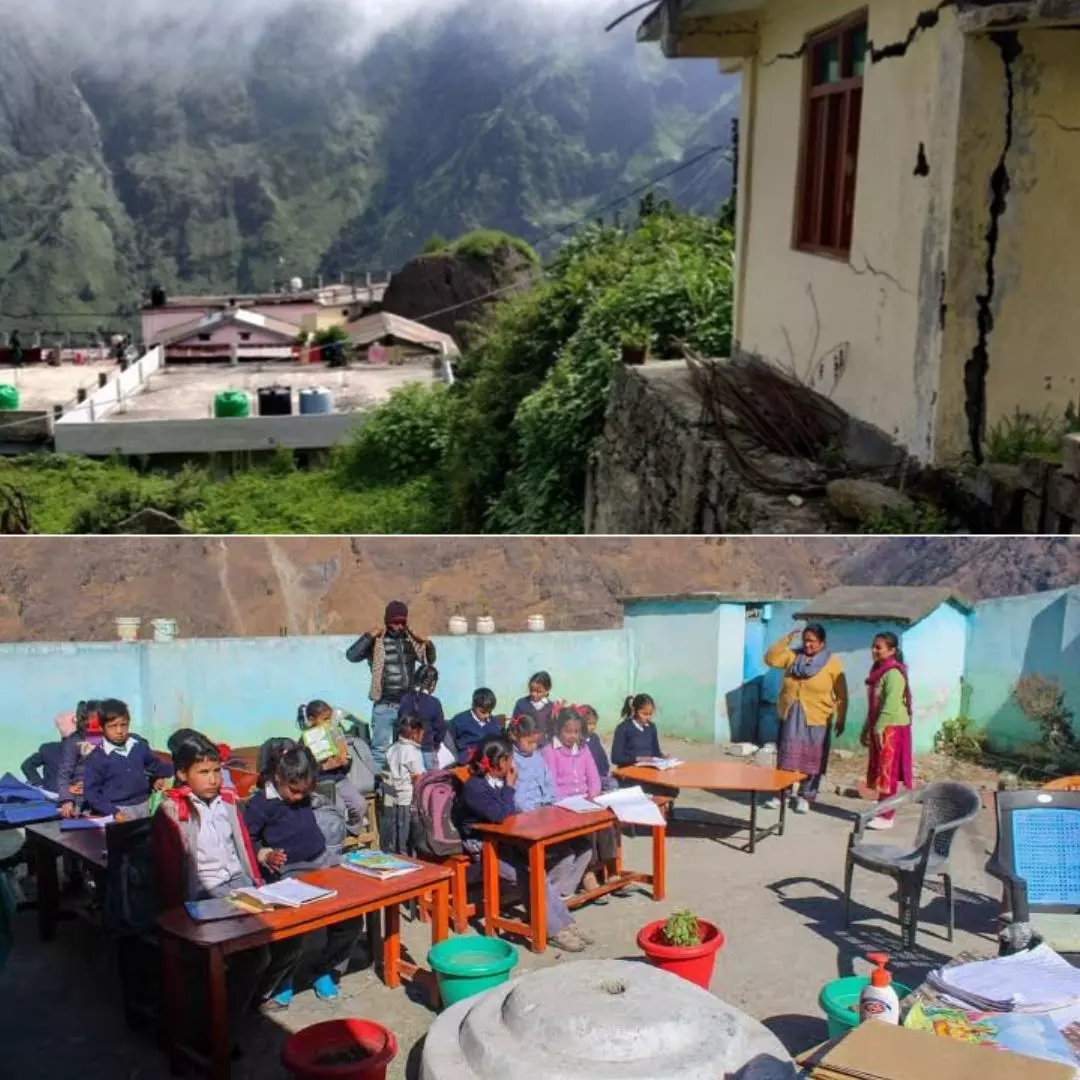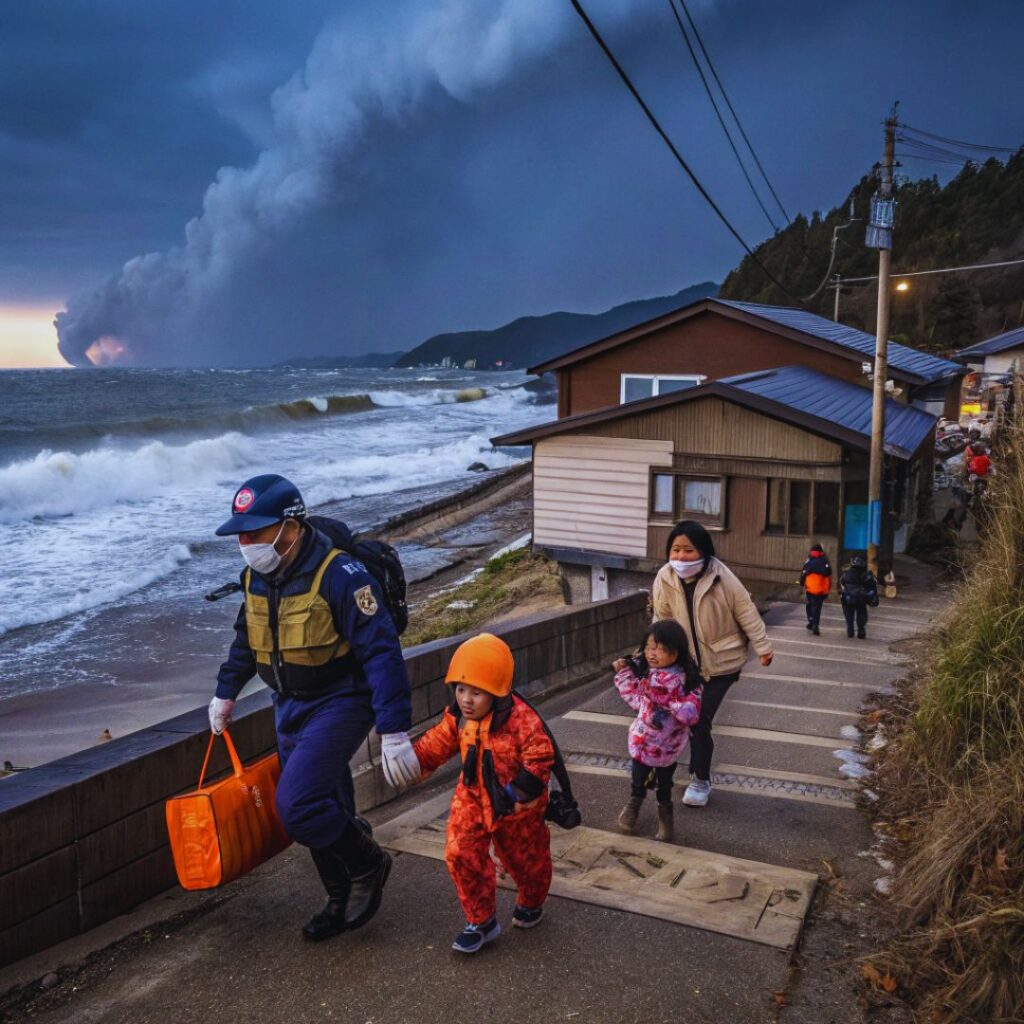Cracks appearing in houses and structures around Joshimath came down like a crashing reality upon residents living in the region for years. Despite committees and reports from decades back suggesting that Joshimath is not ideal for a township, the government continued to explode the region with developmental projects and activities.
As the town began to cave in, people are now grappling with displacement and the crippling uncertainty about their future. With the land subsidence in Joshimath, hundreds lost their homes and livelihoods, and now live in the relief camps battling a range of mental health problems from insomnia to depression.
Mental Health & Natural Tragedies
With no end in sight to the Joshimath crisis, many worry if they would ever be able to go back to the town they once called home. Many of them are currently residing in government-run shelters, hotels or have left town for better. The land subsidence event impacted every group in Joshimath, and how they have been taking in the major change is a matter of concern today. Studies have often pointed out the correlation between natural tragedies and the mental health pressure it places on the affected individuals. The mental health problems documented following natural tragedies include depression, anxiety disorders, and post-traumatic stress disorder (PTSD).
Addressing these concerns on a professional level, many experts suggested screening and awareness programmes among survivors to prevent and treat psychiatric morbidity. Talking about the noticeable impacts, Dr Jyotsana Naithwal, said that “the major symptoms among affected people are insomnia and anxiety.” Naithwal is a psychiatrist from AIIMS Rishikesh who has been deployed at the community health centre in Joshimath and is a part of the three-member team of mental health professionals appointed to help people battle mental trauma.
She conveyed that gauging mental illness is challenging as people don’t report symptoms regarding mental health as much as they report physical ailments. Fewer people come forward to address their mental health due to the stigma attached. The team of doctors have been doing frequent rounds around the affected areas to check if someone exhibits symptoms.
A counsellor is constantly on the beck and calls to help them to cope through relaxation techniques and breathing exercises. However, they say, “we had been warning that a mental health epidemic is on its way. Many people our volunteers have been in touch with are facing trauma and mental issues.” Being forced to part from the place they called home is not as simple as it may seem, and it has easily paved the way to a spectrum of problems among the residents.
“We Keep Thinking About Our House”
Many residents recall the anxiety that came along with each and every phone call as they shifted to temporary facilities. A resident was quoted saying, “We keep thinking about our house. Imagine the trauma of living in a sinking house for a year. It is horrifying.” They also reported losing their sleep due to the anxiety and how it affected their education and work life.
Suraj Kapruwan, a laundry shop owner in Manohar Van, was among those whose business had to be shut down following the town sinking. He said that he hasn’t had a full night’s sleep ever since. A report by The Telegraph quoted him saying, “I am depressed and hardly get any sleep at night. I keep thinking about my business on which I spent lakhs. There is no compensation still in sight. I don’t know how to cope with the situation.”
According to government data, the number of structures that have developed cracks so far stands at 868, and this number is expected to increase further. A tweet from the official handle of DM Chamoli conveyed that an amount of ₹505.80 lakhs has been distributed so far for “damaged buildings, special rehabilitation package, one-time special grant for transportation of goods and immediate needs and purchase of household materials as advance relief to the affected families.” Necessary basic facilities like food, drinking water, and medicine are being provided to the affected people in the relief camps.
However, some are of the opinion that the situation will only get worse if the authorities don’t act faster and come up with a prompt rehabilitation plan for residents of Joshimath. Atul Sati, convenor of the Joshimath Bachao Sangharsh Samiti (JBSS), also alleged serious discrepancies in the official survey of damages and compensation. Adding on to this, he shed light on the concern that many people who deserved compensation did not receive it while others who were not affected got it instead.
https://thelogicalindian.com/h-upload/2023/02/11/500x300_229654-untitled-design-32.webp
Trending
2023-02-11 09:58:37.0
Trauma Of Sinking Village: Displaced Residents Grapple With Mental Health Issues After Loss Of Homes & Livelihoods











